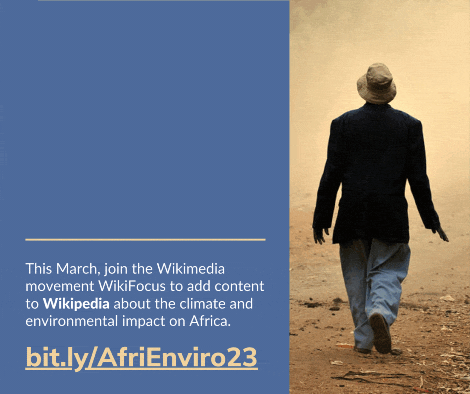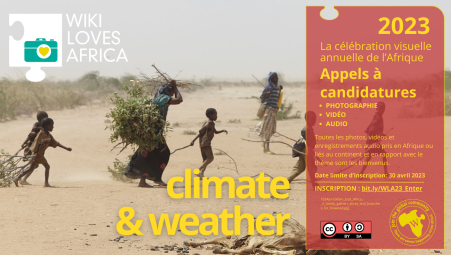In Nelson Mandela’s seminal autobiography, Long Walk to Freedom (1995), he stated:
“One cannot be prepared for something while secretly believing it will not happen.”
With climate change impacting weather patterns and environmental degradation rife across the African continent, how can Africa’s populations prepare if they don’t even know what is happening and what to do about it?
In 2019, the Afrobarometer report found that only 28% of Africans (in the 34 countries surveyed) were aware of climate change as a concept. This worrying lack of knowledge is partly due to a pervasive lack of visibility of any factual information related to Climate, Weather, and Climate Change, which is absent and hardly ever carried by Africa’s media. Wikipedia is one of the few media platforms that people across Africa can access for free. Yet, the information about climate, climate change, and environmental impact related to Africa needs to be updated if it exists.
In March 2023, Wiki In Africa‘s Florence Devouard and Isla Haddow-Flood, in partnership with Wikimedia Usergroup Côte d’Ivoire (WMUG CI), was tasked by the African Knowledge Initiative (an African Union and Wikimedia Foundation partnership) to develop and manage an awareness and content contribution WikiFocus to tackle this monumental continental oversight. The two-month-long African Environment WikiFocus was designed to inspire Africa’s Wikimedia communities to add updated, factual content that fills the gaps in climate and environment knowledge on the Wikimedia projects.
The African Environment WikiFocus launched on the 3rd of March, a day set by the Africa Union to celebrate one of Africa’s most stalwart and inspiring environmentalists, Wangari Maathai.
Wangari Maathai famously said: “You cannot protect the environment unless you empower people, you inform them, you help them understand that these resources are their own, that they must protect them.”
With Wangari Maathai’s words echoing in our hearts, we released a bi-lingual call to Africa’s Wikimedians, offering microgrants to support training and contribution events and for jurors to assess these applications. Sixty-two microgrant applications were submitted, and 49 expressions of interest in being a jury member.
The seven-member jury faced the challenge of whittling down the final selection to 17 microgrant-funded communities in 13 countries.
Harnessing the Power of WikiFocus to Inspire Environmental Action in Africa
The bi-lingual (English and French) Africa Environment WikiFocus was centrally organized online around the Africa Environment portal on Meta. Activities occurred across Africa through online and on-the-ground activities of 16 microgrant-funded communities (one withdrew).
“The Africa Environment WikiFocus has been a game-changer in working with the Wikimedia projects to raise awareness about environmental issues and promote sustainable open practices in the region,” says co-organiser Florence Devouard. “Its success is a testament to the power of collective action and the importance of knowledge-sharing in creating a better future for our planet.”
The 16 communities hosted over 28 events in 13 African countries (Botswana, Benin, Cameroon, Côte d’Ivoire, Democratic Republic of Congo, Ghana, Guinea, Kenya, Malawi, Nigeria, Rwanda, Tanzania, Togo and Zimbabwe). The selected African Environment WikiFocus applications received microgrants totaling 20,125 USD.
“I also got to learn about different individuals because we worked with environmentalists and climate change individuals fighting to protect environments and help keep the environment safe, ranging from a 20-year-old who initiated the school strike initiative. She’s from Osun State. The ‘school strike’ initiative has to do with the fact that every Friday, they will skip classes to go and do a kind of demonstration, telling our governments how to help protect our environment. Every Friday, they come together and do a kind of demonstration. So, it’s very interesting.” — Obiageli Ezeilo (Local Organiser, Nigeria)
Wiki In Africa hosted three online training webinars, two online office hours, and three local organizer meetups online (with the mid-term organized by WMUG CI) to support skills acquisition, experience sharing, provide visibility, and support the activities of the micro-grantees.
There were three external partners (one media partner, two activism partners). A compilation of 51 lists, reports, and references in both English and French and 12 red lists reinforced the factual contributions of each community and individual participant.
“It was an eye-opener because I discovered the range of ecosystems, conservation efforts, and some other sustainable practices being implemented across the continent. I also got to know more about the connections between the environment and the community and the importance of preserving our natural resources, particularly in Africa. You know, it’s really been an exciting one, and it’s really exposed me to a lot of ideas and opportunities.” — Kingsley Nkem (Nigeria)
The African Environment WikiFocus far exceeded expectations. The 17 communities that received microgrants hosted around 400 editors in creating or adding to around 10,500 articles and 2,579 references. There were around 4,500 media uploads to Wikimedia Commons – this figure excludes the 12,961 Wiki Loves Africa contributions under the theme of Climate & Weather.
“I realized that there wasn’t really an article that talked about the climate or the air here, for example. So you can imagine. And today, through this campaign, my greatest joy is to see that when you type on Wikipedia: “Climate of the Democratic Republic of the Congo,” you already have an article presenting the climate of the DRC. So it’s a real pleasure to have articles that talk to you about climates—the climate of our capital, Kinshasa, for example—so it’s a real pleasure for us.” – Valentin Nasibu (D R Congo)
Just a few of the examples of articles created or improved as part of the WikiFocus include these articles in French:
- Effets du changement climatique sur les écosystèmes
- Climat de la Côte d’Ivoire
- Climat de la République démocratique du Congo
- Agence nationale de l’environnement
Just a few of the examples of articles created or improved as part of the WikiFocus include these articles in English:
- Climate change and food security in Africa – Wikipedia
- Eco Warriors Movement – Wikipedia
- Raoul du Toit – Wikipedia
- Deforestation in Zimbabwe – Wikipedia
Finally, many articles were created in local language Wikipedias across Africa, including these:
- Gur Wikipedia: Organic fertilizer
- Igbo Wikipedia: Movement nke Ndị Ntorobịa
- Rwandese Wikipedia: Umugezi wa Semliki
- Swahili Wikipedia: Mabadiliko ya tabianchi Mashariki ya Kati na Afrika Kaskazini
- Ewe Wikipedia: Afrika ƒe yame ƒe nɔnɔme
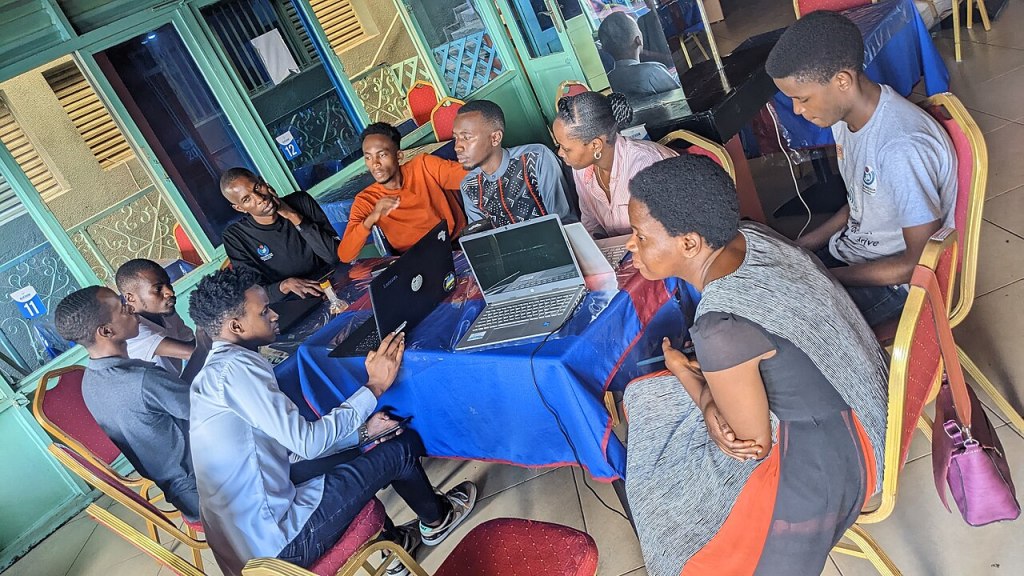
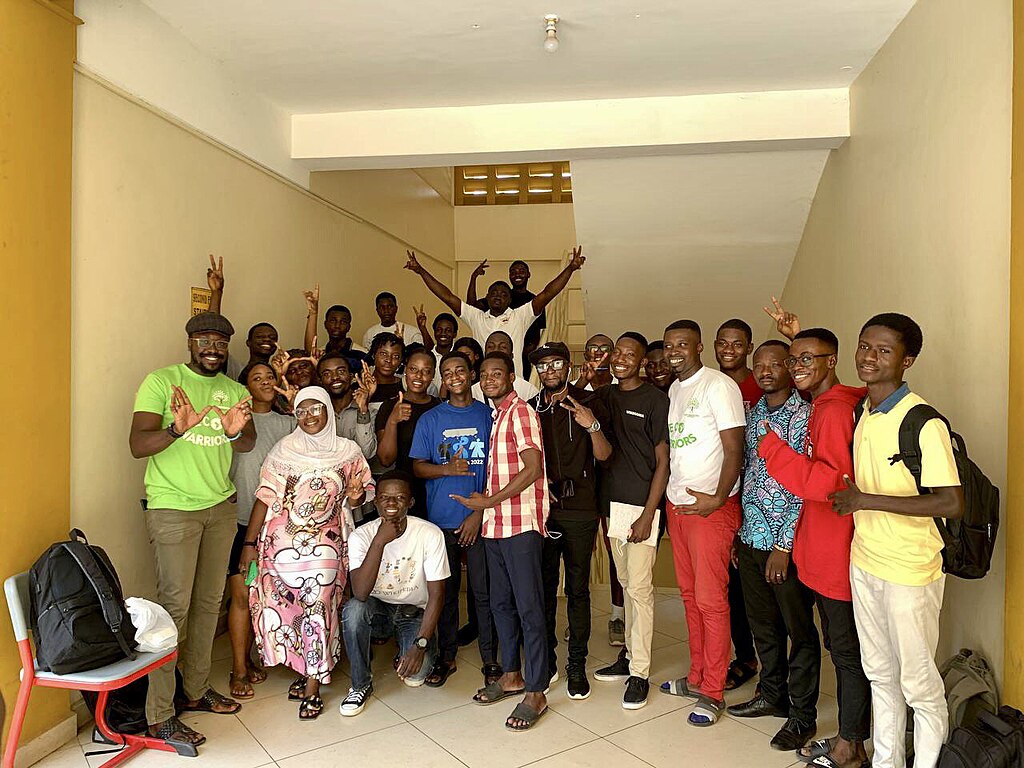
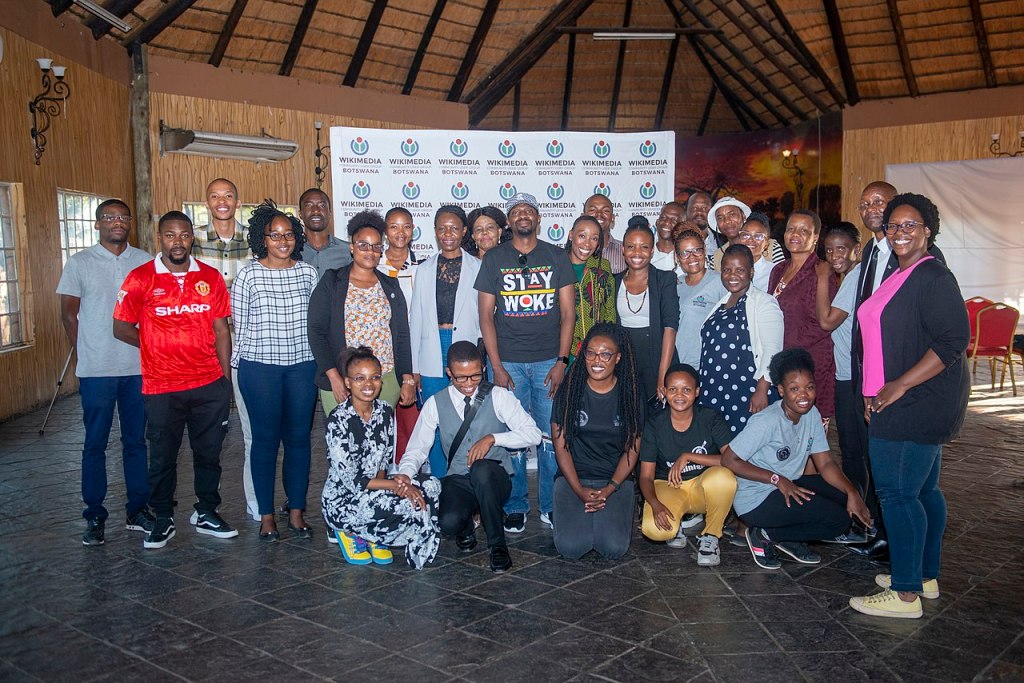
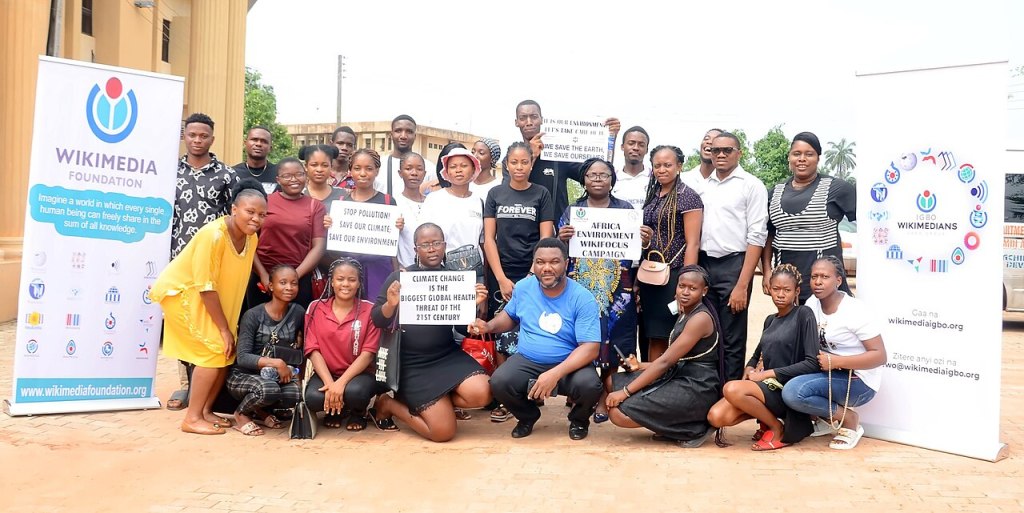
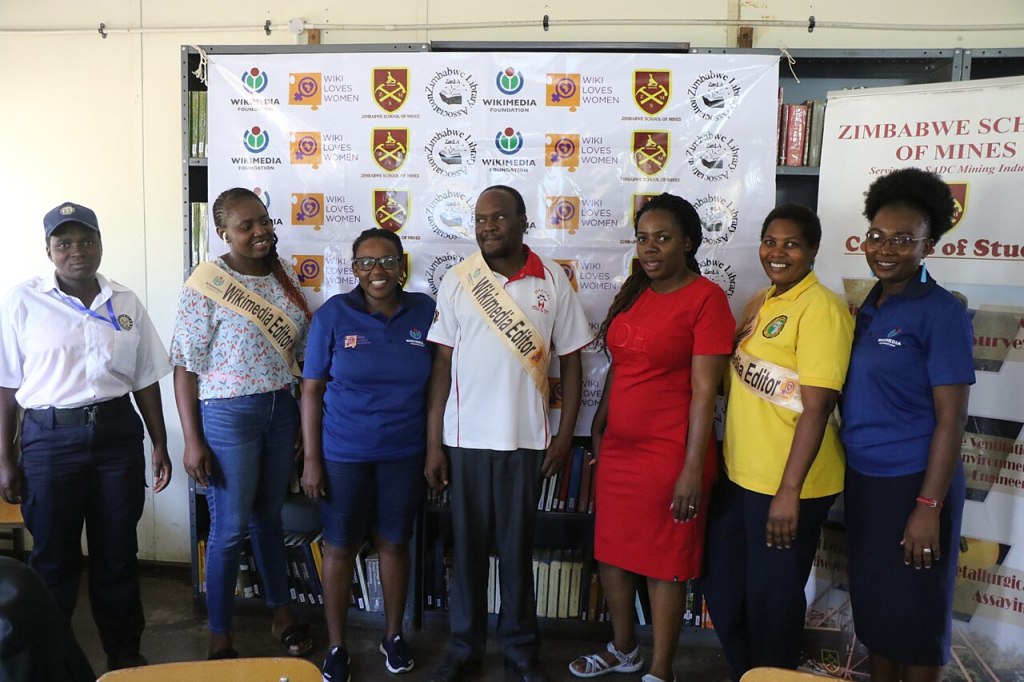
Extending the visibility of the project through collaborative synergies
Aligning the focused activities of existing Wiki In Africa initiatives with the African Environment Wiki Focus was pivotal in its overall success. WikiAfrica Hour, the live monthly Wikimedia discussion show, was the platform for the launch event (watch the launch on YouTube).
The Wiki Loves Women annual Tell Us About Her image description drive focused on images depicting Women on the Frontline of Climate. This drive resulted in 28 contributors adding 43,835 descriptions to 2,076 images on Wikimedia Commons.
Finally, Africa’s most potent annual photo contest, Wiki Loves Africa, received 12,961 images, video, audio, diagrams, and photo essays depicting Climate & Weather, contributed by 804 photographers (57% new contributors to the Wikimedia projects).
The intentional alignment by Wiki in Africa between the two projects – Wiki Loves Africa and the Africa Environment WikiFocus – saw the addition of two extra prizes to Wiki Loves Africa 2023. The Africa Environment WikiFocus has sponsored two Wiki Loves Africa media categories for the best representation of the impact of climate change: the best video and the best photo essay. The winners will be announced at Wikimania 2023 in August.
A great beginning – so much still to be achieved
Africa is one of the regions most vulnerable to the impacts of climate change. The continent is responsible for only around 4% of global greenhouse gas emissions. Still, the United Nations has warned that climate change will disproportionately affect Africa. Expected impacts include increased frequency and severity of droughts, floods, and other extreme weather events that can damage crops and infrastructure and cause food shortages. The United Nations Development Programme (UNDP) has released estimates that climate change could reduce crop yields in Africa by up to 30% by 2050.
African Environment WikiFocus is just the beginning! The human and environmental cost of the unusual and extreme weather patterns in the first part of 2023 alone has indicated that climate information is indeed a priority. Wiki In Africa is looking forward to ensuring it happens again next year, to a greater extent with a more significant impact. We look forward to you joining us and other open movement initiatives focused on making a difference!

Can you help us translate this article?
In order for this article to reach as many people as possible we would like your help. Can you translate this article to get the message out?
Start translation
